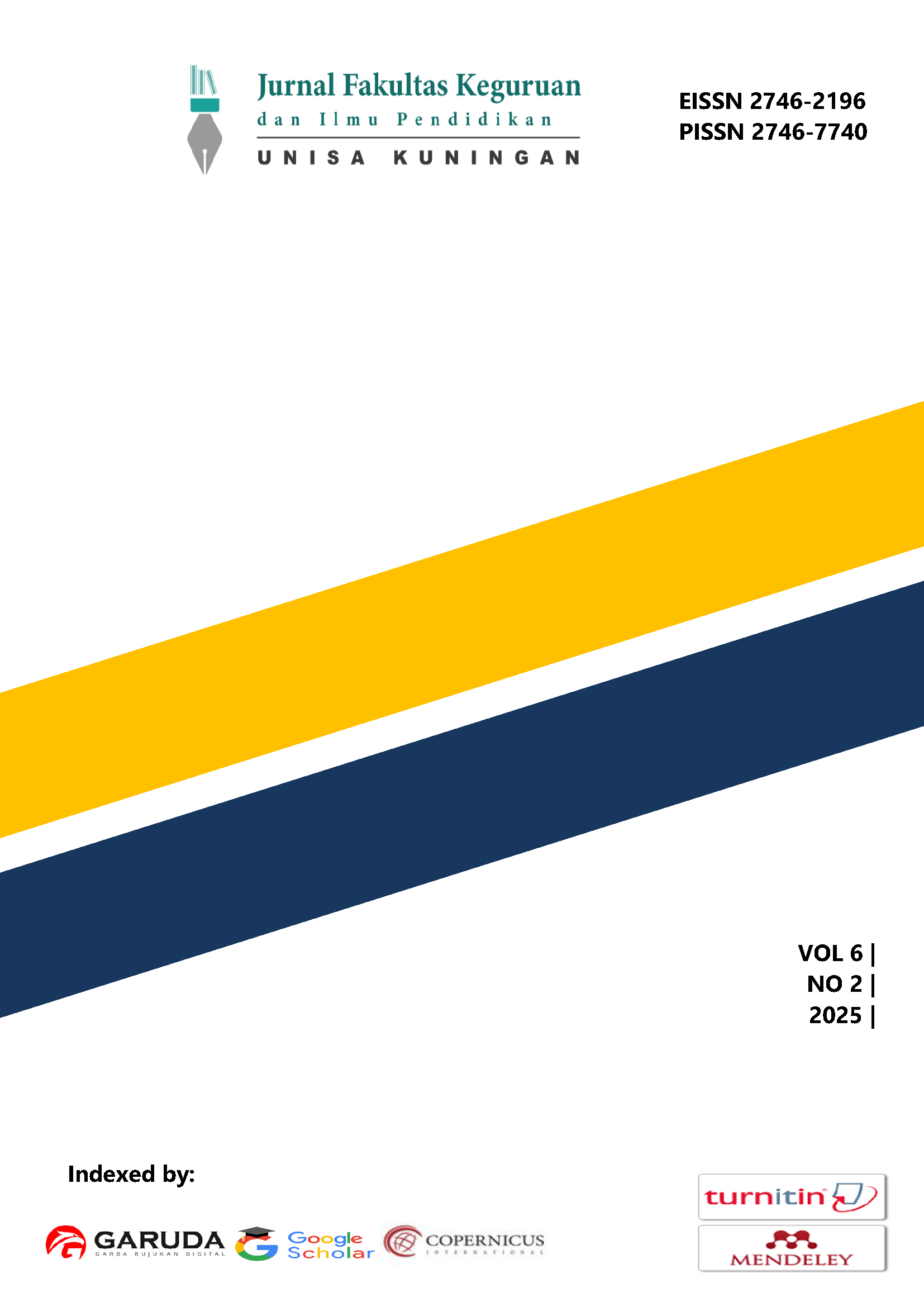An Analysis of Exercise Activities And Students’ Perception In The Grade Xii English Textbook Merdeka Curriculum Based On The Revised Bloom’s Taxonomy
Keywords:
English Textbook, Merdeka Curriculum, Revised Bloom's Taxonomy, Students' PerceptionAbstract
This research is a qualitative study that analyzes the exercise questions in textbook based on the cognitive dimensions of Revised Bloom’s Taxonomy and explores students’ perception of the effectiveness of their use. The implementation of the Merdeka Curriculum requires the development of students’ higher order thinking skills, but the limited evaluation of the suitability of question exercises with the demands of Higher Order Thinking Skills (HOTS) is a challenge in achieving learning objectives. This aim of this research is to analyse of cognitive aspect and students’ perception in exercise activities of merdeka curriculum English textbook based on the revised bloom’s taxonomy in grade XII SMAN 1 Kuningan in 2025. This research focuses on the first edition of the English textbook for grade XII of the Merdeka Curriculum published by the Ministry of Education, Culture, Research and Technology in 2022. The analyzed aspects include listening, speaking, reading, viewing, writing, and assessment in Unit 1 and Unit 2. To deepen the analysis, a questionnaire was distributed to students to explore their perceptions of the level of difficulty and complexity of the exercises. The results of the analysis showed an imbalance in the distribution of cognitive levels in the exercises. Three aspects are dominated by Lower Order Thinking Skills (LOTS), namely listening 82%, viewing 72%, and reading 64%. In contrast, the other three aspects integrate Higher Order Thinking Skills (HOTS), namely writing 83,5%, speaking 68,8%, and assessment 51,5%. Students’ perception expressed interest in questions that develop critical thinking skills, especially writing and speaking activities, but experienced obstacles in understanding question instructions and lack of contextual material, in the aspects of listening and viewing. This study concludes that exercise questions have not fully contributed to encouraging higher order thinking skills and distribution adjustment are needed to optimize learning that encourages critical, creative and independent thinking.
Downloads
Published
Issue
Section
License
Copyright (c) 2025 Jurnal Fakultas Keguruan & Ilmu Pendidikan Kuningan

This work is licensed under a Creative Commons Attribution-NonCommercial-NoDerivatives 4.0 International License.










